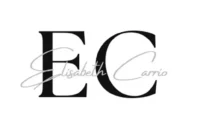Astrology could be used to define a psychic identity card, a personality; in the same way that physical traits or external characteristics define an individual's social identity; the zodiacal chart would be to the immaterial what the identity card is to the material. This idea struck me when I was studying psychology, and I've been exploring it ever since. It's the results of this multidisciplinary and symbolic research that I'd like to share with you.
Let's start from the hypothesis that each planet represents a trait of this personality, and that the combination of each planet with the other (aspects) and their position in the signs and houses define a unique personality for each person.
Very briefly, the Sun represents willpower and conscious reason; the Moon, imagination and emotional faculties; Mercury, intelligence; Venus, seduction and desires; Mars, the person's capacity for action and combative energy; Jupiter, integration into society; and Saturn, structuring and responsibility.
For the moment, I'm only using the 7 planets of traditional astrology to simplify the presentation. But contrary to the positions taken by traditional astrology, I don't think there are any malefic or beneficial planets. In fact, psychologically speaking, each of the seven traits represents an aspect of a personality, and like a jigsaw puzzle, all the elements are necessary to achieve the unity of an individual. It's a question of appropriating these different aspects and not rejecting some of them. It's also worth noting that each era and culture may value a particular character trait; this doesn't mean that it's something to be fought against, but rather to be integrated. Perhaps this is the definition of destiny. Negative or positive actions are not a direct result of the supposed quality of the planet, nor of the aspects formed by the planets between them, but of the person's level of awareness and self-knowledge. Continuing the parallel with physical identity, would having blue eyes or black skin be beneficial or harmful? In fact, it all depends on which latitude or era you're born into. Societies value this or that aspect. But the planet or aspect itself is neutral or factual.
On the other hand, the use we make of the planet's energy can be positive or negative. As we all know, the Sun represents generosity, but also pride; the Moon, imagination, but also the emotional overflow that prevents us from acting…. Only by understanding our personality and mastering these energies can we achieve balance and freedom. Learning astrology and its symbolic system helps us achieve this.
The freedom I've mentioned is the freedom to realize one's destiny, or more humbly, to realize what one is made for. In fact, the personality indicated by the planets will lead us to act spontaneously in a given direction. Thus, a person whose dominant personality is Jupiterian will act more generously. If Saturn is dominant, the person will have a structuring and responsible role, particularly with regard to society. Astrology defines a double system of understanding: of oneself in relation to oneself, but also of oneself in a given environment (society, culture…).
These few hypotheses allow us to outline a theory of personalities based on 7 or even 10 dominant personalities expressing themselves in identifiable ways. This approach is not new; Hippocrates already classified personalities according to the elements: fire, earth, water and air, thus obtaining 4 temperaments. More recent theorists (Cattel, Costa & McCrea…) have used psychometric tests to define personality traits. So why not start from the symbolic system provided by astrology?

